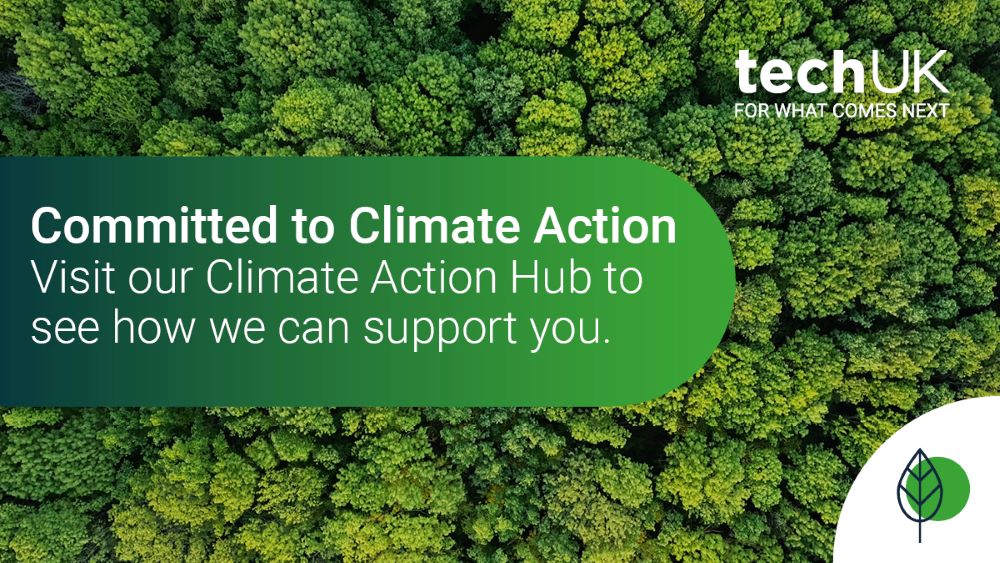Can cloud tech give net zero goals a real chance? (Guest blog from Civica)
Author: Jeff Hewitt, Executive Director, Local Government at Civica.
According to the World Economic Forum, Cloud software can play a crucial role in the drive to reduce carbon emissions across public sector, says Civica’s Jeff Hewittechnologies could deliver up to 20% of the International Energy Agency’s 2050 net zero emissions target. With the Climate Change Committee assessing that local authorities will struggle to deliver on their net zero ambitions, we review some of the ways that cloud software can help.
Digital technology is the powerhouse behind so many carbon-cutting initiatives today, from optimising transport and making supply chains more sustainable to managing green energy. In local government, the picture is no different. Cloud software is helping councils to monitor and manage their energy use and emissions, and to work smarter.
Tracking and recording energy use and emissions
The 2050 net zero target has directly impacted the public sector, making it essential for organisations first to identify and quantify their emissions and energy use, and then track them over time. The latest tech will enable local authorities to tackle this challenge from several angles.
For managing property and estates, digital solutions can analyse energy use and costs across a portfolio. They can store meter readings, tariffs and bills, making it possible to identify inefficient assets and to build carbon reduction strategies into existing asset maintenance plans. At Middlesborough Council, for example, Civica’s solution is helping the local authority’s property team to reduce waste in resources and work more efficiently.
Carbon can now be built into expense tracking, too, for example by recording emissions related to business travel, giving employees guidance on the most sustainable choices and helping local authorities to track their overall Scope 1 emissions.
Working smarter
This is what digital technology excels at. Inefficiency in any process typically wastes energy as well as time, and cloud software can be transformative because of the data visibility it provides.
For example, any activity that has a mobile workforce – community-based healthcare, for example, or property management – can be prone to duplication of work or unnecessary journeys. When software makes it possible to see everything in one place, this problem can be easily solved.
In health and social care, scheduling software can now use intelligent routing to minimise travel time, prevent duplicate appointments and allow healthcare professionals to hand over tasks without needing to return to the office. Similar solutions are available for vehicle fleets, where cloud-optimised route planning software creates efficient routes that take into account variables such as driver availability and vehicle capacity.
For teams that look after property portfolios, cloud solutions can allocate maintenance jobs nearest to where operatives are, minimising driving distances. And they can link up to IoT-powered ‘smart city’ initiatives that use connected sensors to make activities such as waste collection more energy efficient.
The potential for carbon-efficient working extends everywhere – even into kitchens. Caterers can use cloud solutions to calculate the CO2 values of their menus, so they can reduce their environmental footprint and ensure that foodservice is contributing to overall carbon targets.
Working with a lighter footprint
Cloud software has a central role to play in helping local authorities to reach their sustainability targets. It makes it possible to share datacentres, reducing the need to manage and upgrade IT equipment that will have high embodied carbon as well as cost. Cloud solutions also allow teams to work from anywhere, reducing travel time to and from offices, and potentially freeing up office space.
Net zero is daunting. But as these examples show, technology is evolving quickly to support intelligent ways for local authorities to work towards their targets. The attraction of the software-driven journey to carbon reduction is that it doesn’t rely on huge investment or hard-to-implement changes to working practices. With the right solution, the carbon-efficient way of working can rapidly become business as usual.
Cloud Week 2023
News, views and insights on how cloud computing continues to reshape how we live and work. techUK's annual Cloud Week is an opportunity for the tech community to explore key issues in cloud and highlight new ideas and thought leadership from our members.
Cloud computing and the path to a more sustainable future
This techUK insights paper highlights the commitment of our members to a sustainable approach to cloud computing and sets out six core best practice principles for a greener future for the tech sector.
techUK - Committed to Climate Action
Visit our Climate Action Hub to learn more or to register for regular updates.
By 2030, digital technology can cut global emissions by 15%. Cloud computing, 5G, AI and IoT have the potential to support dramatic reductions in carbon emissions in sectors such as transport, agriculture, and manufacturing. techUK is working to foster the right policy framework and leadership so we can all play our part. For more information on how techUK can support you, please visit our Climate Action Hub and click ‘contact us’.
Climate, Environment and Sustainability updates
Sign-up to get the latest updates and opportunities from our Climate, Environment and Sustainability programme.
Upcoming climate events






